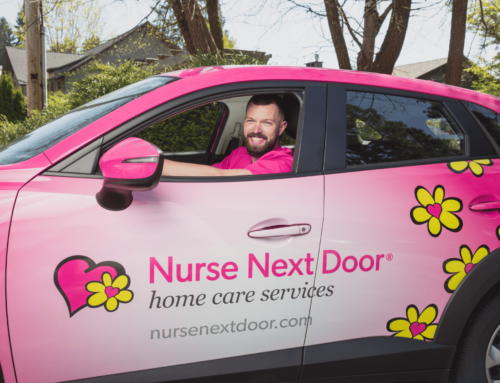The home health care sector in Georgia is experiencing significant growth, with an estimated value of more than $3 billion in 2020. According to the Georgia Health Care Association, there are over 200 home health agencies operating in the state, providing in-home care to individuals who need assistance with daily living activities. The increased demand for home-based care as a cost-effective alternative to traditional nursing homes is driving this ever-expanding growth.

A home health agency is a business that offers medical services, such as nursing care, physical therapy, and other forms of medical attention, to patients who prefer to receive care in the comfort of their own homes. With the growing need for home health care, starting a home health agency in Georgia is a smart investment opportunity.
This comprehensive guide covers the steps involved in starting a home health agency in Georgia, from research and planning to hiring staff and staying compliant with regulations. Additionally, it compares the pros and cons of starting a home health business versus buying a franchise to help individuals make informed decisions.
Whether you’re an experienced entrepreneur or new to the healthcare industry, this guide provides all the information you need to succeed as a home health business owner in Georgia.
Research and Planning for a Home Health Care Business
Before starting a home health agency in Georgia, it is essential to conduct thorough research and to plan to ensure successful business operations long into the future. This will help you have a clear understanding of the market, regulations, and costs involved in starting and operating a home health business in the state.
Target Market
Determining your target market is a critical step in starting a home care business. This includes understanding the demographics of the population in your area who are most likely to use your services.
Consider factors such as age, health status, and income level when determining your target market. Researching the number of senior citizens, disabled individuals, and others who may require home healthcare and skilled nursing services in your area can also help you gauge the potential size of your market.
According to the Georgia Health Care Association, Georgia has a large aging population, with over 1.5 million individuals over the age of 65 and a growing number of disabled individuals who may require home healthcare services. This presents a significant opportunity for those looking to start a home health care business in Georgia.
Regulations
Adhering to various state and federal regulations is of utmost importance in Georgia for starting a home care business. This includes obtaining necessary licenses and certifications such as a home health care license issued by the Georgia Department of Community Health, following patient privacy regulations such as HIPAA, and adhering to state and federal healthcare regulations such as those established by the Centers for Medicare & Medicaid Services (CMS).
Additionally, it is important to understand and follow regulations related to staffing, patient care, and record-keeping. Failure to comply with these regulations can result in costly fines and legal penalties and can negatively impact the reputation of your business. It is highly recommended to seek the advice of a healthcare attorney to ensure compliance with all relevant regulations.
Cost Calculation
Running a health services business in Georgia can be costly. It is important to calculate the expenses associated with starting and operating a home health agency, such as licensing fees, insurance, employee salaries, and equipment costs. This will help you determine the funding required for your business and whether you need to seek additional investors or financing options.
Click to discover the start-up costs for starting your own home care franchise.
Obtaining Licenses and Certifications for Home Health Agencies
To legally offer home health services as a business in Georgia, it is necessary to obtain the necessary licenses and certifications. These licenses and certifications not only ensure compliance with the law but they also demonstrate your commitment to providing quality care to your patients and add credibility to your business.
Georgia Department of Community Health License
The first step in obtaining a license for your home health agency in Georgia is to apply for a license from the Georgia Department of Community Health (DCH). This process includes submitting an application, paying fees, and providing proof of insurance, among other requirements. The DCH will review your application to ensure compliance with all requirements and if approved, will issue a license allowing you to legally operate a home care agency in Georgia.
Medicare and Medicaid Certification
In addition to the Georgia DCH license, obtaining certification from Medicare and Medicaid is also crucial. This will enable your business to receive reimbursement for services provided to patients enrolled in these programs. Obtaining certification from Medicare and Medicaid involves a thorough review of your agency’s policies and procedures and a survey of your agency by representatives from each program.
Importance of Proper Licensing and Certification for Home Care and Nursing Services
Proper licensing and certification are essential for the success of your home health agency. They not only ensure that you are operating within the law but also establish your agency as a credible and trustworthy provider of home healthcare services. By obtaining the required licenses and certifications, you can demonstrate your commitment to providing high-quality care and operating your business in an ethical and responsible manner to your patients, employees, and the community.
Developing a Business Plan
Developing a comprehensive business plan is critical to the success of your home health care agency. Your business plan should include a clear description of your business model, target market, marketing and sales strategy, operational plan, and financial plan. It should also outline your long-term goals and how you plan to achieve them.
A business plan keeps you focused, helps you track your progress, and enables you to make informed decisions based on data and research. It is also a crucial document when seeking funding from investors or lending institutions.
Finding and Hiring Staff
Finding and hiring the right staff is a crucial step in the success of your business. The right staff can have a significant impact on the quality of care you provide and your reputation in the industry. When hiring, look for individuals with healthcare experience, a passion for helping others, and a strong work ethic.
Begin by creating job descriptions and posting the positions you need to fill. Consider using online job boards, networking, and employee referrals. During the interview process, ask about the candidates’ experience and qualifications, but also look for qualities such as empathy, compassion, and good communication skills. Background checks and reference checks are also important steps in the hiring process.
Marketing and Advertising
Marketing and advertising play a crucial role in promoting your home health care agency and attracting new clients. It is essential to develop a marketing strategy that not only highlights your services but also emphasizes the compassionate and high-quality care you provide.
Types of Marketing Strategies
There are many types of marketing strategies to choose from when promoting your home health care agencies. Some common strategies include:
- Online advertising through websites, social media, and email campaigns
- Content marketing through blog posts and informational articles
- Public relations through media coverage and community events
- Referral programs for current clients and healthcare providers
Remember that your marketing strategy should be customized to your target audience and services offered. Continuously assess and adjust your marketing strategy to effectively reach your target market.
Keeping Up with Regulations
Once you have successfully launched your home care business in Georgia, it is important to stay current with state and federal regulations. The Georgia Department of Community Health and the Georgia Board of Examiners of Certified Nursing Assistants regulate the home health care industry in the state, while federal regulations are set forth by the Centers for Medicare & Medicaid Services (CMS).
State and Federal Regulations
It is crucial to stay informed about the latest state and federal regulations related to home health care, including patient care, privacy, and record-keeping. Regularly reviewing and updating your policies and procedures to ensure compliance is essential for maintaining your license and certification.
Importance of staying up to date
Staying up-to-date on the latest regulations is important for various reasons. Firstly, it helps to ensure the safety and well-being of your patients by providing quality care that meets the highest standards. Secondly, it helps to maintain compliance with state and federal laws, avoiding costly fines and legal penalties. Finally, staying up-to-date enhances the reputation of your agency and boosts the trust that patients and their families have in your services.
Comparing: Own Home Care Business or Buy a Home Care Franchise
When starting a home health business, one of the key decisions you must make is whether to start your own business or purchase a franchise. Both options have their pros and cons, and the decision will depend on your specific needs and goals.
Starting your own home care business gives you complete control over the operations of your agency, enabling you to make decisions based on your own vision and objectives. However, it also comes with the challenge of having to create your own business plan, marketing strategies, and administrative systems from scratch.
On the other hand, buying a home care franchise provides a proven business model, established processes and systems, a personal business coach, and access to the franchisor’s marketing and advertising resources. This can save you time and money, but you will also have to pay franchise fees and comply with the franchisor’s guidelines and policies.
Ultimately, the choice between starting your own home care business or buying a franchise will depend on your personal circumstances, including your budget, experience, and desired level of control.
Conclusion
Starting a home health agency in Georgia can be both a challenging and rewarding experience. By conducting thorough research and planning, obtaining the necessary licenses and certifications, developing a strong business plan, hiring quality staff, and staying up-to-date with regulations, you can launch and operate a successful home health agency. With hard work and dedication, you can build a business that not only provides financial stability but also offers a fulfilling experience that makes a positive impact on people’s lives.
Thinking of starting your own business? Partner with an award-winning Franchise System like Nurse Next Door. You will benefit from low franchise fees and can start your business with as little as $20,000.
It’s never too late to start a home care agency in Massachusetts. Get started with our free discovery process and resources to help you get started!

 x
x









